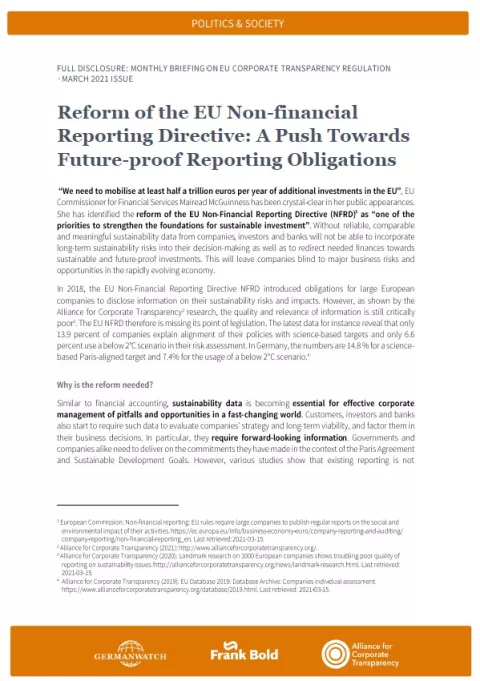
March 2021 Issue
This year will be key for future climate policy and especially for sustainable finance in Germany and Europe. Sustainable Finance plays a crucial role in improving climate protection and sustainable growth. To this end, Germanwatch joined forces with the Alliance for Corporate Transparency in order to push towards greater corporate responsibility and disclosure requirements to meet the EU and Paris climate targets.
This article kicks off and introduces our briefing series "Full Disclosure: Monthly Briefing on EU Corporate Transparency Regulation", in which we aim to shed light on the need for and benefits of forward-looking reporting requirements in a changing EU regulatory environment.
About this issue:
In order to achieve the EU climate targets and the targets of the European Green Deal of climate neutrality by 2050 the latest, investment has to be re-allocated sustainable. To do so, the EU commission has declared to review the "Non-financial reporting directive" (NFRD) to ensure more adequate data is available, needed by investors to include climate and sustainability-related risks and challenges into their decision-making. Originally, large companies with more than 500 employees were obligated to report under the NFRD. However, based on research results provided by the Alliance for Corporate Transparency and others, currently disclosed information is lacking in relevance, comparison and quality.
Aligned with the Commission's new Sustainable Finance Action Plan, the new NFRD framework aims to set a clear reporting standard that will help provide the necessary data. ACT looks at the possible design of corporate reporting requirements in the new NFRD.




